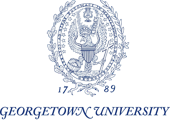Jessica Roda is an assistant professor of Jewish civilization at Georgetown University (School of Foreign Service, Center for Jewish Civilization). Anthropologist and ethnomusicologist specializing in Jewish life in North America and France and in international cultural policies, her research interests include religion, performing arts, cultural heritage, gender, and media. Her articles on these topics have appeared in various scholarly journals, as well as edited volumes in French and English. The author of two books and the editor of a special issue of MUSICultures, her more recent book (Se réinventer au present, PUR 2018) was finalist for J. I. Segal Award for the best Quebec book on a Jewish theme and received the Prize UQAM-Respatrimoni in heritage studies.
Her forthcoming monograph (New York University Press, under contract), "Beyond the Sheytl. Women, Performances, and Reshaping Jewish Orthodoxy in the Digital Age, investigates how music, films, and media made by ultra-Orthodox women act as agents of social, economic and cultural transformation and empowerment, and as spaces that challenge gender norms, orthodoxy, and liberalism. This book is the result of five years of collaborative ethnography with women who situated themselves as living in or exiting their ultra-Orthodox communities in Montreal and New York City.
Roda earned Ph.Ds from both Sorbonne University and the University of Montreal, and has served as a visiting fellow and scholar at McGill University (Eakin Fellow, Simon and Ethel Flegg), Columbia University (Heyman Center), UCLA (Department of Ethnomusicology), and Universidade Estadual de Campinas, Brazil. Her research has been funded by several programs and institutions in North America and Europe, including the Social Sciences and Humanities Research Council of Canada, the Fonds de Recherche Société et Culture du Québec, the Berman Foundation Early Career Fellowships, the Fondation pour la Mémoire de la Shoah, the Société Francaise d’Ethnomusicologie, and the Hadassah-Brandeis Institute. In 2014, she was selected by the Royal Society of Canada and the Science Council of Japan in the WISET Program (Women in Science, Engineering, and Technology).
Experience
-
–presentAssistant Professor Jewish Civilization (Anthropologist/Ethnomusicologist), Georgetown University
Education
-
2013Sorbonne University , Ethnomusicology
- Washington DC
- Website
- Article Feed
- ORCID
- Joined


